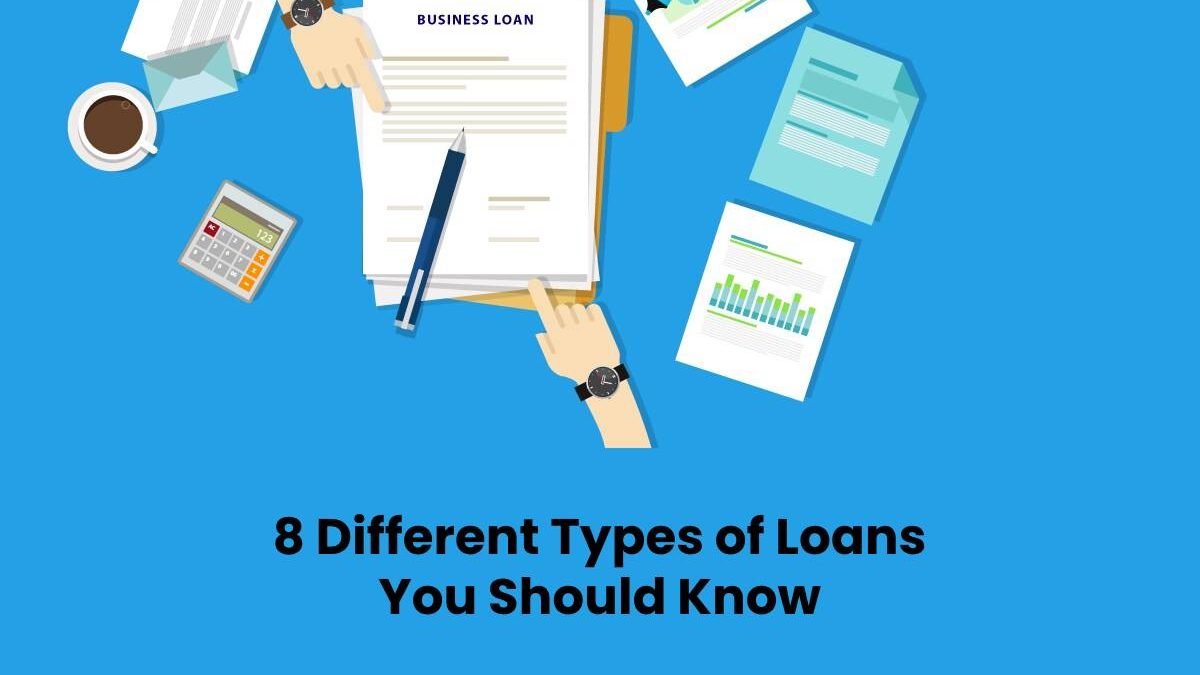Financial problems can take us by surprise, and you can never be prepared for them. But what if you could solve them in just a few minutes with a loan? Don’t know what type of loan to choose? Read below about 8 different types of loans and decide what suits you the best.
The types of loans offered by banks differ, first of all, according to the destination of the borrowed money, as follows:
Table of Contents
1. Payday Loans
Cash loans till payday are one of the most famous loan products among Americans. They borrow payday loans for emergency expenses and repay them on the next paycheck. With a payday cash loan, consumers may get from $100 up to $1,000. Borrowers can choose between a 14-day loan and a 30-day loan. The crucial thing to know about these financial products is they are more expensive compared to other loans. The annual percentage rate can reach 400%. Their costs are justified by the speed of funding which means that the lender will transfer the money on the business day in the borrower’s bank account.
Plus, Americans may get a specific loan product, such as no credit check payday loans. These loans are popular among consumers with bad credit scores. Usually, lenders don’t run hard checks on clients’ credit histories. They assess the creditworthiness by reviewing the general information about borrowers’ current financial situation. These financial tools work exceptionally well for consumers with low credit ratings or no credit background.
2. Education Loans
Education loan for students are available on different terms from government funds, banks, and online companies. These loans have more benefits when compared to other loans.
3. Installment Loans
By requesting an installment loan, you agree to repay it in equal monthly payments. The repayment period varies from 2 months to 24 months. Installment loans allow you to borrow from $1,000 up to $5,000 with the 7% as APR. These loans are used to pay for more expensive costs like major medical bills, house renovations, car repairs, or other significant taxes.
4. Long-term personal Loans
Personal loans (or consumer loans as these types of loans are called by many banks) are loans you borrow to cover major debts like credit card debts or study taxes debts. With a personal loan, an American citizen can borrow from $5,000 to $15,000 with a maximum term of 36 months. The APR of these loans is also low and doesn’t exceed 5%. Consider a personal loan only as a long-term financial tool, not a short-term solution for paying your minor expenses.
5. Title loans
Loans for the purchase of various durable goods are usually offered in stores. In these cases, the bank transfers the loan amounts, representing the value of the products you used as collateral. The most famous object used as collateral is a vehicle. People are allowed to drive the car while paying the loan. If they can’t repay it on time, the lender may seize the vehicle. So, take care to assess your budget not to lose your automobile.
6. Mortgage Loans
Loans for real estate investments: mortgages for purchasing or home construction or loans for home renovation. In the first case, the borrowed amounts are automatically transferred to the seller of the house. In contrast, for the home renovation loans or the construction of the houses, the beneficiary must prove to the bank the expenses.
7. Credit cards
These are a particular type of loan, which is not usually included in the credit category. It is because card issuers and banks recommend that this loan not be used as a regular loan but only as a reserve of money to cover a short-term lack of cash or to take advantage of specific discounts, bonuses, or special services. However, more and more banks are promoting credit card with interest-free installments as shopping cards, which can be used to purchase ever-increasing securities, which can be repaid in more and more installments.
8. Car Loans
A car loan is a suitable solution for various economic scenarios in which you need a vehicle. Maybe you haven’t managed to save money so far and put it aside in a bank deposit. Or perhaps you don’t want to spend your savings on one car, but you want to invest them in something else. In this case, the car loan is the long-term purchase that you make using the help of the lending institution.
Specifically, the car loan is an amount of money that you receive from a bank or non-bank institution to purchase a new or used car, contributing an advance between 15-25% of the car price. The loan differs by company and depends on the type of loan you take: leasing or a loan.
9. Student Loans
Although it has now been found that students aren’t accepted so readily by banks for financing. A current solution comes from direct financial institutions, which grant personal loans only with the ID card, with no guarantors even to students.
These lending companies have several ways of financing available to solve fundamental problems in student’s life. They work legally after a whole series of agreements concluded with the Lending Act, so you should not have any issues in this regard.
Most non-bank financial institutions do not charge commissions or mortgage guarantees, so consider it a good option for student loans.

